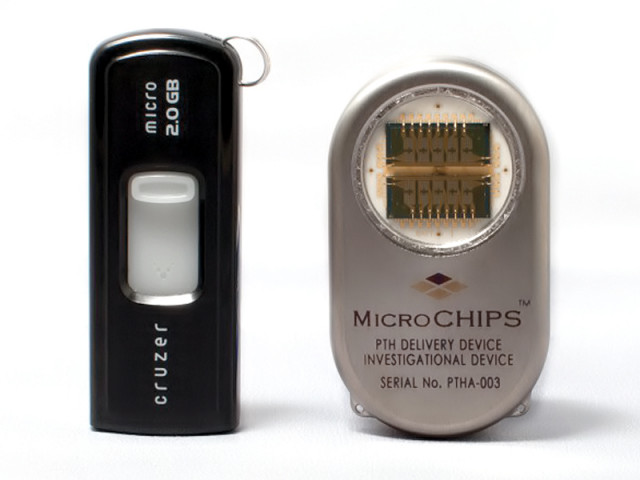Scientists report success in first human tests of drug-delivery chip
The chip-based device automatically delivers regular doses of medication to osteoporosis sufferers.

Scientists report success in first human tests of drug-delivery chip
In the trial phase of this technology, the programmable chips were each loaded with 20 doses of the osteoporosis drug teriparatide, each dose sealed within its own pinprick-sized reservoir. Each of those reservoirs was capped with a mixture of platinum and titanium (or gold), which melted when an electrical current was applied from an integrated battery — thus releasing the drug into the body. The devices can follow a preprogrammed medication schedule, although they can also be manually triggered via radio communication over a select frequency. In this way, doctors could remotely adjust a patient’s dosage, if needed.
The clinical trial took place in Denmark last January. Seven women aged 65 to 70 received the implants subcutaneously, just below the waistline. The 30-minute procedure was performed under local anesthetic. The women then proceeded to go about their lives as usual for the next four months, the chips providing them with regular doses of teriparatide throughout that time. The researchers proceeded to monitor the condition of the test subjects for a period of one year.
Not only did the implants prove to be safe, but the patients reportedly often forgot that they were even there. Bone formation caused by the medication was found to be similar to that occurring in patients that received daily injections of the drug, plus there was less variation in the dosages delivered by the chip.
Published in The Express Tribune, February 25th, 2012.



















COMMENTS
Comments are moderated and generally will be posted if they are on-topic and not abusive.
For more information, please see our Comments FAQ